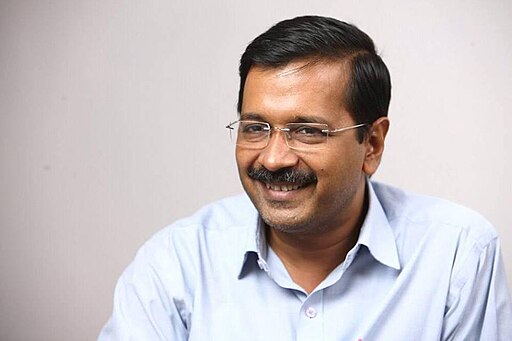Arvind Kejriwal appoints Atishi to replace him as Delhi’s Chief Minister while he campaigns for re-election, following his recent bail in a corruption case
On September 17, 2024, Delhi’s Education Minister Atishi was officially chosen by Arvind Kejriwal to replace him as the chief minister of the capital territory. This decision allows Kejriwal to focus on his election campaign, as he seeks a fresh mandate in the upcoming assembly elections, scheduled for mid-February next year.
Atishi, a 43-year-old prominent member of the Aam Aadmi Party (AAP), has been a significant figure in Delhi’s political scene. She has been associated with AAP since its inception, which emerged from an anti-corruption movement spearheaded by Kejriwal. Following Kejriwal’s arrest in March on charges of corruption related to Delhi’s liquor sales policy, Atishi has played a key role in the administration, supporting the party’s governance amidst the controversy.
Kejriwal, aged 56, was detained for nearly six months in connection with allegations he deems politically motivated. On Friday, he was granted bail by the Supreme Court of India. Despite his release, Kejriwal announced his decision to step down as chief minister to concentrate on his re-election campaign. He plans to submit his resignation to Delhi’s lieutenant governor later today.
In a statement to the press, Atishi expressed her commitment to protecting the interests of Delhi’s residents and promised to govern under Kejriwal’s guidance. “While this responsibility lies with me, I will protect the people of Delhi and run the government under Arvind Kejriwal’s guidance,” she said.
Kejriwal’s resignation is strategically timed as he seeks to leverage his campaign on the premise that he has been unjustly targeted. His detention occurred just before the national elections, leading opposition figures to accuse Prime Minister Narendra Modi and his Bharatiya Janata Party (BJP) of attempting to undermine AAP’s electoral prospects. The BJP, however, has refuted these claims, stating that law enforcement was simply fulfilling its duties.
The controversy surrounding Kejriwal’s arrest also comes in the wake of other political developments. Rahul Gandhi, a prominent Congress leader, was convicted of criminal libel last year and faced disqualification from parliament. Although his sentence was later suspended by a higher court, the incident sparked concerns about democratic norms in India.
Atishi’s appointment as chief minister marks a significant shift in Delhi’s political landscape, as she steps into a role shaped by ongoing legal and electoral challenges. As Kejriwal prepares for his electoral battle, Atishi’s leadership will be closely watched, reflecting both the resilience of AAP and the broader implications of political dynamics in Delhi.
Analysis:
Political: Atishi’s appointment as Delhi’s chief minister marks a pivotal moment for the Aam Aadmi Party (AAP) and its political strategy. Arvind Kejriwal’s decision to step down and focus on his election campaign highlights a strategic manoeuvre to capitalize on his perceived victimization. The timing of his resignation and Atishi’s elevation reflects an effort to consolidate support and shift public focus back to electoral issues. This transition underscores the ongoing power dynamics within AAP and its response to legal and political challenges. Kejriwal’s bid for re-election amidst allegations of corruption and his temporary departure from office may also influence voter sentiment and party positioning.
Social: The change in leadership in Delhi underscores the broader societal implications of political scandals and legal battles. Atishi’s rise to the chief ministerial position symbolizes a shift in governance while maintaining continuity with Kejriwal’s policies. This transition could impact public perception of political integrity and administrative effectiveness. The scenario also reflects societal concerns about corruption and accountability in governance, as Kejriwal’s legal troubles and Atishi’s new role are likely to influence public discourse on political ethics and leadership.
Racial: While racial dynamics are less directly relevant in this context, the political and social implications of Atishi’s appointment may intersect with broader discussions about representation and governance. Atishi’s ascent to chief minister could influence perceptions of diversity and inclusion in leadership roles, particularly in a multicultural and diverse city like Delhi. The political discourse surrounding her appointment may also reflect broader themes of representation and fairness in governance.
Gender: Atishi’s appointment as Delhi’s chief minister is a notable development in terms of gender representation in Indian politics. As a woman stepping into a significant leadership role, her position highlights ongoing discussions about gender equality in political leadership. Her ascent reflects progress in breaking traditional gender barriers within Indian politics, showcasing the potential for increased female representation in high-level roles. The impact of her leadership will be closely observed in terms of advancing gender equality and influencing perceptions of women in governance.
Economic: The political upheaval in Delhi, including Atishi’s appointment and Kejriwal’s legal challenges, may have economic implications for the city. Governance stability and administrative effectiveness play crucial roles in economic development and investment. The transition in leadership could affect policy continuity and implementation, potentially impacting economic priorities and projects in Delhi. Additionally, the broader political climate and legal controversies may influence investor confidence and economic planning in the capital territory.
